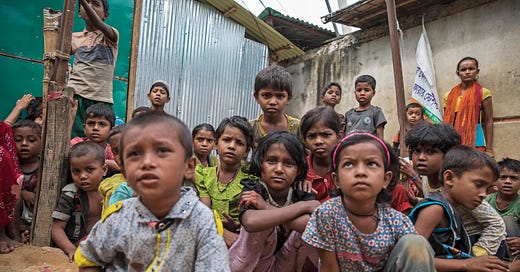The God of Refugees
Preparing for the Third Sunday of Advent: Three Days before Sunday (Year A)
Scripture
Psalter: Psalm 146:5-10
Old Testament: Ruth 1:6-18
Epistle: 2 Peter 3:1-10
___
Prayer
O God of Isaiah and John the Baptist, through all such faithful ones you proclaim the unfolding of future joy and renewed life. Strengthen our hearts to believe your advent promise that one day we will walk in the holy way of Christ, where sorrow and sighing will b…
Keep reading with a 7-day free trial
Subscribe to Faith Seeking Understanding to keep reading this post and get 7 days of free access to the full post archives.




